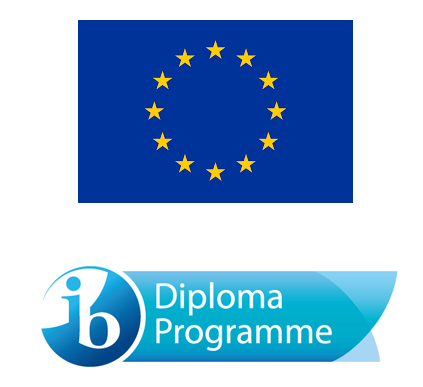
The European Baccalaureate and the International Baccalaureate are both secondary school leaving diplomas.
Recognised internationally, they both serve a dual purpose: to certify successful completion of secondary education and to provide access to higher education.
These diplomas stem respectively from the European Baccalaureate programme and the International Baccalaureate Diploma Programme.
Although both aim for similar goals, they differ significantly in admission criteria, curriculum structure, and global recognition.

Admission and access
European Baccalaureate vs International Baccalaureate
- The European Baccalaureate programme is only offered in European Schools and accredited European Schools. Places in these schools are primarily reserved for the children of officials and staff of the European Union institutions.
- The International Baccalaureate programme, on the other hand, is offered in IB-accredited international schools (International Baccalaureate). The International Baccalaureate is the common name given to the Diploma Programme of the International Baccalaureate Organization. The IB is a globally renowned programme. Currently, over 4,500 schools around the world offer IB programmes.
To access the IB programme, students must be enrolled in an accredited international school.
Programme structure
European Baccalaureate vs International Baccalaureate
Secondary studies in European Schools span 7 years and are divided into 3 cycles.
The third and final cycle comprises the European Baccalaureate cycle, covering two years: S6 and S7.
The diploma is awarded at the end of the seventh year.
The IB Diploma Programme also lasts two years. It is awarded upon successful completion of exams at the end of the second year.
| CYCLES | YEARS | AGES |
|---|---|---|
| Cycle 1 | Secondary 1 to 3 | 11 – 13 years |
| Cycle 2 | Secondary 4 and 5 | 14 – 15 years |
| Cycle 3 (European Baccalaureate) | Secondary 6 and 7 | 16 – 18 years |
The IB includes several international education programmes. The Diploma Programme is the one that leads to the award of the International Baccalaureate. This programme lasts two years. After these two years, the International Baccalaureate is awarded upon successful completion of the final year exams.
| IB PROGRAMMES | AGES |
|---|---|
| Primary Years Programme (PYP) | 3-11 |
| Middle Years Programme (MYP) | 11-16 |
| Diploma Programme (International Baccalaureate) | 16-18 |
Curriculum: subjects and approach
European Baccalaureate vs International Baccalaureate
- The European Baccalaureate focuses on a balanced curriculum with core subjects like languages, sciences, maths, humanities, and physical education. Students can study multiple subjects and specialise in particular areas.
- The International Baccalaureate offers a broader and more diverse curriculum. It includes six subject groups: languages, humanities, mathematics, sciences, the arts, and individuals & societies. It also features cross-disciplinary components like Theory of Knowledge (TOK), the Creativity, Activity, Service (CAS) project, and the Extended Essay.
Academic recognition and university access
European Baccalaureate
- Recognition in Europe: The European Baccalaureate (EB) is widely recognized throughout Europe for access to higher education. It is considered equivalent to national secondary school leaving diplomas in EU member states, which means that an EB holder can apply to universities and higher education institutions across Europe on the same basis as a national diploma holder.
- International recognition: Although the EB is primarily intended for recognition within Europe, it is also accepted by certain universities and institutions outside of Europe. However, this international recognition is less systematic compared to the International Baccalaureate (IB).
International Baccalaureate
The International Baccalaureate is a diploma program offered in many international schools around the world. It is designed to be universally applicable and accepted across various educational systems.
- Global recognition: The IB is recognized worldwide. Universities and higher education institutions in many countries (including the United States, Canada, the United Kingdom, Australia, and others) accept the IB diploma for admission, often granting course credits or equivalencies for subjects completed within the IB program.
- Recognition in Europe: In Europe, the IB is also widely recognized and accepted—sometimes even preferred over national diplomas or the European Baccalaureate due to the academic rigor and global scope of the IB program.
> List of universities around the world that recognize the IB:





